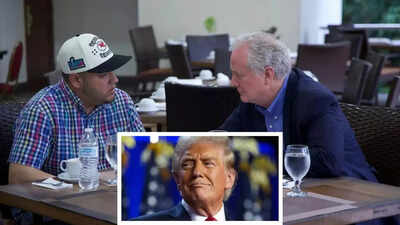Unlocking the funding is critical for Pakistan, which has enough foreign reserves to cover just three weeks’ worth of imports. Fuel comprises the bulk of the import bill.
Pakistan secured a $6 billion IMF bailout in 2019, which was topped up with another $1 billion last year. This is the IMF’s ninth review of its Extended Fund Facility, which is meant to help countries facing a balance-of-payment crisis.
The IMF has set several conditions for resuming talks on the bailout, including a market-determined exchange rate for the local currency and an easing of fuel subsidies.
Pakistan takes several steps to secure IMF bailout:
- Finance minister Ishaq Dar met IMF Pakistan mission chief Nathan Porter and briefed him on the “fiscal and economic reforms and measures being taken by the government in different sectors”.
- Last week, Pakistan removed an artificial cap on the rupee, resulting in 20% loss of its value against the US dollar until Monday.
- It also raised fuel prices by 16%, saying the increase was in response to higher global energy costs.
- The central bank has also raised interest rates this month by 100 basis points to fight record high inflation, which is expected to be at 24%-26% in January.
- For months, Prime Minister Shehbaz Sharif held out against tax rises and subsidy slashing demanded by the IMF, fearful of backlash ahead of elections due in October.
- But in recent days, with the prospect of national bankruptcy looming and no friendly countries willing to offer less painful bailouts, Islamabad has started to bow to pressure.
Pakistan has less than $3.7 billion in the state bank — enough to cover just three weeks of imports.
It is no longer issuing letters of credit, except for essential food and medicines, causing a backlog of thousands of shipping containers at Karachi port stuffed with stock the country can no longer afford.
Food and fuel shortage
Industry has been hammered by the imports block and massive rupee devaluation. Public construction projects have halted, textiles factories have partially shut down and domestic investment has slowed.
In downtown Karachi, dozens of day labourers including carpenters and painters wait with their tools on display for work that never comes.
“The number of beggars has increased and the number of labourers has decreased,” said 55-year-old mason Zafar Iqbal, who was eating biryani from a plastic bag donated by a passerby.
At the petrol pump, a widow with her son said every few hundred rupees (75 cents) of fuel for their motorcycle was precious, with the pair only eating two meals a day.
“The cost is so high that we eat our breakfast late and the second meal at around seven, with nothing in between,” said Ulfat, who declined to give her second name.
Pakistan is struggling on many fronts, with the country reeling from unprecedented floods that submerged a third of its territory last summer and a deteriorating security situation near the Afghanistan border.
Last week, the whole country was plunged into a day-long blackout because of a fault in the national grid that followed a cost-cutting measure.
External debt
Pakistan is locked in an endless cycle of servicing external debt.
State bank governor Jamil Ahmed last month had said the country owed $33 billion in loans and other foreign payments before the end of the fiscal year in June.
A diplomatic offensive has seen $4 billion rolled over by lending nations, with $8.3 billion still on the negotiating table.
Political chaos
The tumbling economy mirrors the country’s political chaos, with former PM Imran Khan pressuring the ruling coalition to call for early elections.
Khan, who was ousted last year in a no-confidence motion, negotiated the multi-billion-dollar loan package from the IMF in 2019.
But he reneged on promises to cut subsidies and market interventions that had cushioned the cost-of-living crisis, causing the programme to stall.
It is a common pattern in Pakistan, where most people live in rural poverty, with more than two dozen IMF deals brokered and then broken over the decades.









![Best Weight Loss Supplements [2022-23] New Reports!](https://technologytangle.com/wp-content/uploads/2022/12/p1-1170962-1670840878.png)




